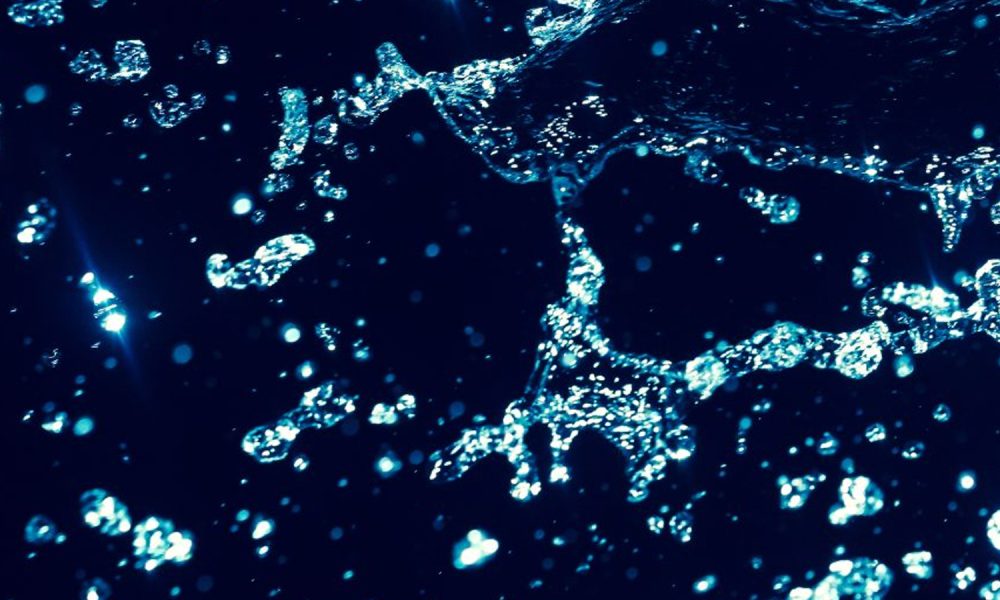As the article states, "As Perseverance grows its cache of Red Planet rocks, rover team members are preparing for an ambitious future phase of the mission: sending these samples to Earth, perhaps as soon as 2033. The sample-return campaign, a joint effort of NASA and the European Space Agency (ESA), offers a good chance to hunt for signs of ancient Mars life, as Jezero Crater hosted a big lake and a river delta billions of years ago."
This is the primary mission on Mars since the Viking landers in the 70s. Meteorite ALH84001 looked like a good selection but since fallen apart. Abiogenesis is a key concept here too. Now we have a new report out today on abiogenesis featuring a water droplet and Big Bang for life on Earth appearing.
Research reveals that life on Earth began with a ‘Big Bang’ in a small drop of water,
https://www.msn.com/en-us/health/me...pc=U531&cvid=83b87ec919ca4fc1a9416b4d2ca1b442
Here are some notes I made on this report.
"Life on Earth began with a chemical "Big Bang" - in a drop of water, according to new research. It provided reactions up to a million times quicker than normal - kick-starting evolution, say scientists. The discovery has a host of implications - from speeding up the development of drugs to finding aliens." "This is the first demonstration that primordial molecules, simple amino acids, spontaneously form peptides, the building blocks of life, in droplets of pure water. "This is a dramatic discovery."
My Question. What happens if the water has current and flowing? Do the molecules then get dispersed abroad, not forming peptides?
"The radical theory suggests life happened all at once - in a chemical Big Bang. It has long been thought the ingredients came together slowly - bit by bit. Prof Cooks explained: "The rates of reactions in droplets are anywhere from a hundred to a million times faster than the same chemicals reacting in bulk solution." Speeding them up makes catalysts unnecessary. Understanding how these process works is the 'holy grail' of chemistry." It sheds light on why life happened and informs the search for it on other planets - or even moons."
My Question. Do we see this process operating in water droplets today forming life?
"Puzzlingly, the building blocks of proteins - and life - also require the loss of a water molecule. It's highly unlikely in a wet, aqueous or oceanic environment. For life to form, it needed water. But it also needed space away from the water. Prof Cooks, an expert in early Earth chemistry, and colleagues have now uncovered the answer to the riddle. They've spent over ten years using mass spectrometer scanners to analyse chemical reactions in droplets containing water. Prof Cooks said: "Water isn't wet everywhere." "On the margins, where a droplet meets the atmosphere, incredibly rapid reactions can take place, transforming abiotic amino acids into the building blocks of life. Places where sea spray flies into the air and waves pound the land, or where fresh water burbles down a slope, were fertile landscapes for life's potential evolution. Understanding how amino acids built themselves up into proteins and, eventually, life-forms could revolutionise chemical synthesis."
For decades scientists have theorized it began in the oceans. But the chemistry remained an enigma.

talker.news
So, my simple summary in what I see here. Abiogenesis needed some water to start the origin of life but not too much because water currents could disrupt everything, and life needed some dry times too for evolution to continue. What I could not tell from this abiogenesis report, does this method create DNA and cell-based life or non-DNA and no cell-based life on Earth? Other reports indicate non-DNA and non-cell structure life must come first before DNA and cell structure life evolves. I note from this report, "On the margins, where a droplet meets the atmosphere, incredibly rapid reactions can take place, transforming abiotic amino acids into the building blocks of life. Places where sea spray flies into the air and waves pound the land, or where fresh water burbles down a slope..."
This looks like a process that should be seen on Earth today and then we can watch how that chemistry is turned into biological life. Do not ask about the Faint Young Sun and if the water was frozen

I would also ask about what type of atmosphere chemistry is used here compared to our present, chiefly N2O2 atmosphere.
Here are a some more reports on how abiogenesis created first life on Earth from some other reports.
Imagining early Earth as an exoplanet can help us search for alien life, scientists say,
https://forums.space.com/threads/im...s-search-for-alien-life-scientists-say.55999/
The report above indicates that first life on Earth had no DNA or cell structure.
The first life on Earth depended on a deadly poisonous gas, study suggests,
https://forums.space.com/threads/th...-a-deadly-poisonous-gas-study-suggests.53849/, "Could the toxic gas used in chemical weapons today have been involved in the birth of life on Earth?"




